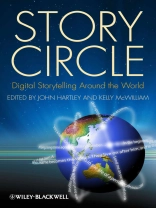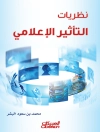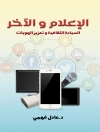STORY CIRCLE
‘Where once cultures valued storytellers for lauding, lamenting, and laughing at those in power, this thoughtful book illuminates the hopes, practices and achievements of the myriad amateur storytellers who populate today’s globalized and digitalized cultures.’ Sonia Livingstone, London School of Economics and Political Science
‘I warmly welcome the publication of Story Circle. It provides a fascinating account of what’s happened in digital storytelling so far and will be a crucial reference point for digital storytelling in the future.’ Menna Richards, Controller, BBC Wales
Содержание
List of Figures
List of Tables
Acknowledgments
Notes on Contributors
Part I: What is Digital Storytelling?
1. Computational Power Meets Human Contact: John Hartley
(Queensland University of Technology) and Kelly Mc William
(Queensland University of Technology)
2. TV Stories: From Representation to Productivity: John Hartley
(Queensland University of Technology)
3. The Global Diffusion of a Community Media Practice: Digital
Storytelling Online: Kelly Mc William (Queensland University of
Technology)
Part II: Foundational Practices
4. Where It All Started: The Center for Digital Storytelling in
California: Joe Lambert (Center for Digital Storytelling, Berkeley,
California)
5. ‘Capture Wales’: The BBC Digital Storytelling Project: Daniel
Meadows (University of Cardiff) and Jenny Kidd (University of
Manchester)
6. Digital Storytelling at the Australian Centre for the Moving
Image: Helen Simondson (Australian Centre for the Moving Image)
7. Radio Storytelling and Beyond: Marie Crook (freelance
consultant))
Part III: Digital Storytelling Around the World
8. Narrating Euro-African Life in Digital Space: Sissy Helff
(University of Frankfurt) and Julie Woletz (University of
Frankfurt)
9. Developing Digital Storytelling in Brazil: Margaret Anne
Clarke (University of Porstmouth)
10. Digital Storytelling as Participatory Public History in
Australia: Jean Burgess (Queensland University of Technology) and
Helen Klaebe (Queensland University of Technology)
11. Finding a Voice: Participatory Development in Southeast
Asia: Jo Tacchi (Queensland University of Technology)
12. The Matrices of Digital Storytelling: Examples from
Scandinavia: Knut Lundby (University of Oslo)
13. Digital Storytelling in Belgium: Power and Participation:
Nico Carpentier (Free University of Brussels and Catholic
University of Brussels)
14. Exploring Self-representations in Wales and London: Tension
in the Text: Nancy Thumim (London School of Economics and Political
Science)
Part IV: Emergent Practices
15. Digital Storytelling as Play: The Tale of Tales:
Maria Chatzichristodoulou (University of London)
16. Commercialization and Digital Storytelling in China: Wu
Qiongli (company director)
17. Digital Storytelling with Youth: Whose Agenda Is It?: Lora
Taub-Pervizpour (Muhlenberg College)
18. Digital Storytelling in Education: An Emerging Institutional
Technology?: Patrick Lowenthal (Regis University)
19. Digital Storytelling in Organizations: Syntax and Skills:
Lisa Dush (Massachusetts University of Technology)
20. Beyond Individual Expression: Working with Cultural
Institutions: Jerry Watkins (Swinburne University of Technology)
and Angelina Russo (Swinburne University of Technology)
References
Index
Об авторе
John Hartley is Distinguished Professor and ARC Federation
Fellow at Queensland University of Technology, and Research
Director of the ARC Centre of Excellence for Creative industries
and Innovation. He is the author of Television Truths
(Wiley-Blackwell 2008) and A Short History of Cultural Studies
(2003), and editor of Creative Industries (Wiley-Blackwell 2005).
He is Editor of the International Journal of Cultural
Studies.
Kelly Mc William is an ARC Postdoctoral Research Fellow
(Industry) in the Creative Industries Faculty of Queensland
University of Technology. She is the co-author, with Jane Stadler,
of Screen Media: Analysing Film and Television (2009) and the
author of When Carrie Met Sally: Lesbian Romantic Comedies
(2008).












